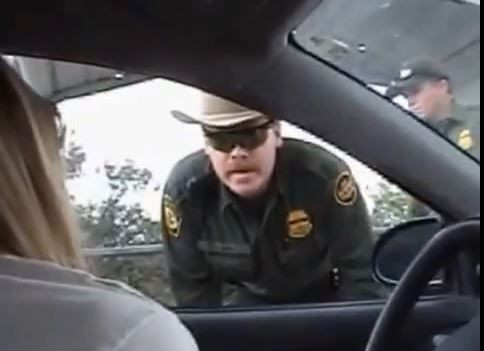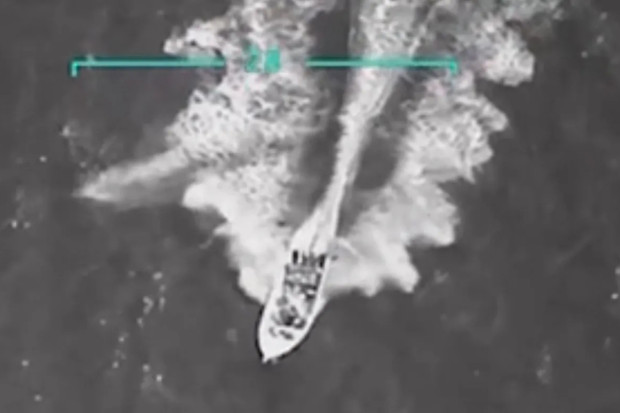
The US Border Patrol operates as far as 100 miles from the US-Mexico border - a capability granted it by the 2001 Patriot Act - where officials say guarding the nation against terrorism is their number one priority. But as the agency's search tactics come under increasing scrutiny by watchdog and human rights groups, a YouTube genre has emerged in which users videotape their encounters with officers at checkpoints, often refusing to submit to searches or detention unless the officers gave reasonable cause. Nogales International published on Friday an article about 26-year-old Jill Lix, a resident of the Patagonia Lake area of Arizona who stars in one particularly successful example, in a 14-minute clip which depicts her standoff with several officers who eventually let her leave. Scroll down to the bottom of the page to see the video.
In the video, Lix - who says she always carries a camera in her car for when the Border Patrol "harasses" her at checkpoints - is heard refusing to pull her car over to be inspected after agents failed to give a reason for any suspicion. "Are you detaining me?" she demands of them repeatedly. As of October 14, the video had been viewed 103,228 times. Nogales International notes that perhaps the most popular of the genre's clips, a montage of "Top DHS checkpoint refusals" has garnered more than 1.8 million views since it hit YouTube on February 24.
According to James Duff Lyall, an attorney with ACLU Arizona, what law enforcement officers are required to prove to justify a search changes depending on where it's taking place. At ports of entry, customs officers can search people trying to enter the US, though no federal court has ruled on whether they can confiscate and search electronic devices. At checkpoints like the one Lix was stopped at, agents can ask vehicle occupants about their legal status. But to search the vehicle, they need either consent from the occupants or probable cause. Lyall told Nogales International that Border Patrol agents "regularly disregard that rule".
Tom Fink, a Nogales-based defense attorney and former federal prosecutor, told the paper, "If there's no consequences for the wrong decision to search, then what are the checks and balances to make sure they are making honest, right decisions?" The paper says that both Fink and Matthew Davidson, another attorney based in the southern Arizona city, have recently won cases by saying that agents carried out unwarranted searches. Click the box below to see Lix's video.
RELATED: Border Patrol To Test Dashboard Cameras Amid Complaints Of Deadly Force Among Immigrants
© 2025 Latin Times. All rights reserved. Do not reproduce without permission.




